Malcolm Blight’s 50 years in league football — Lights, cameras, rat’s tossbags
MALCOLM Blight started his journey in league football 50 years ago, and has left a significant mark on the game. In the third part of a series, Michelangelo Rucci looks at Blight’s time in the commentary booth.
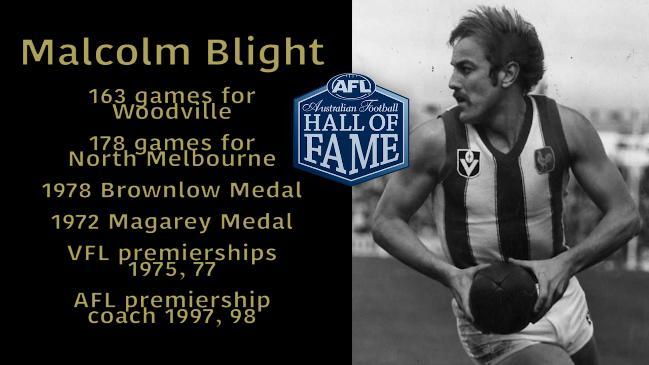
- Footy’s best special comments callers of yesteryear
- Blight’s 50 years in footy Part 2: The coaching days
- Blight’s 50 years in footy Part 1: The playing days
MALCOLM Blight, as he remembers it, said only three words in his first appearance on television as a league footballer at the Channel Nine studios on Tynte Street, North Adelaide in 1968. No-one would say he was stuck for a comment ever again when the red light came on the camera.
Nor would anyone say Blight held back in his commentary either on game day for Channel Seven or Ten — or on the couch in the first of the modern football panel shows, Talking Footy, in the mid-1990s.
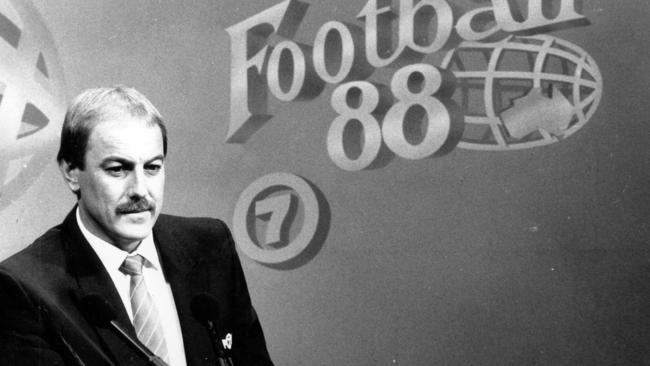
When Channel Seven executive Gary Fenton reviewed Blight’s first night behind the microphone — in 1988 as HSV7 returned to its long-standing position as the VFL’s commercial television partner — he told Blight: “You did it differently.”
“And,” says Blight of his reaction, “they keep telling me if you look up the word ‘different’ in the dictionary you’ll find a picture of M. Blight.”
Just as he did as a player and as a coach, Blight was never going to be a copy of his predecessors. He was never going to base his commentary on what was already obvious to the viewer, such as “Nice mark … nice kick … nice goal.”
In his 50 years in league football, Blight spent 13 as a week-by-week commentator on television — 1988 with Seven before returning to coaching with Geelong; 1995-96, again with Seven, before becoming “The Messiah” with the back-to-back AFL premierships at Adelaide; and 2002-2011 with Channel Ten’s decade in AFL football.
And there was one piece of advice — from Fenton — that followed Blight from his start with Channel Seven in a VFL National Panasonic Cup at Waverley Park in February 1988 to the finish with Channel 10 in 2011: “Just be Malcolm Blight”.
Of the 700 games Blight called — and the two seasons on Talking Footy — there is a 40-second piece from Saturday night football with Channel Ten host Stephen Quartermain in August 2008 that marks Blight from his television chapter in league football.
As a player, Blight is always referenced by the match-winning torpedo after the siren for North Melbourne against Carlton at Princes Park in 1976. As a coach, by the grand final triumphs with Adelaide in 1997-98 when at half-time of each match Blight put the Midas touch on his team. As a commentator, the “rat’s tossbag” response to former St Kilda president Rod Butterss’ remarks on Blight’s demise as Saints coach in 2001 remain a landmark moment in Australian television history.
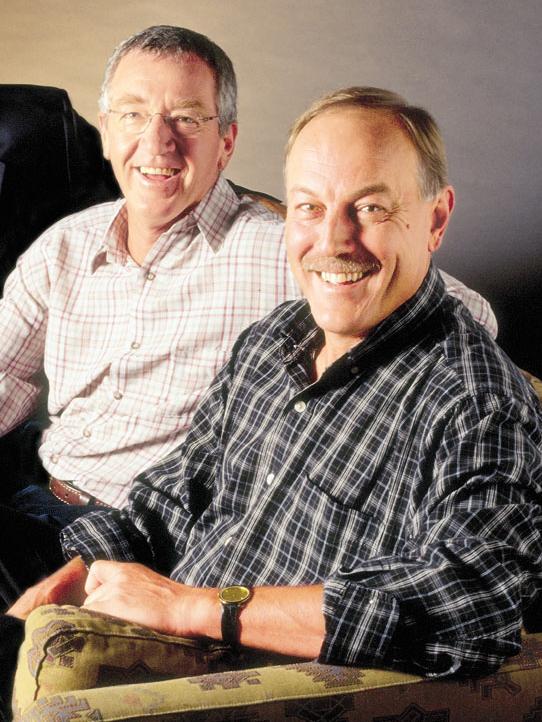
“I could get on my soapbox,” Blight admits. More than a decade earlier, he had fired back at the man with whom he shared the couch at Talking Footy — Mike Sheahan — when the Herald Sun chief football writer declared the one-time “bad news” Brisbane Bears would play AFL finals in 1995.
“I said he was on Froot Loops,” Blight recalled. “And the Bears did play finals … with 10 wins. You can’t always be right.”
Fenton drew Blight to television in 1988 when Blight returned to Melbourne — after coaching his SANFL club Woodville from the doldrums to finals — in a job promotion with a major transport company. Blight had hoped to take up North Melbourne patriarch Ron Casey’s suggestion to work with Kangaroos coach John Kennedy in a grand return to Arden Street, five years after retiring as a North Melbourne player.
“I wanted to help out my old club — and be with the great John Kennedy,” Blight said. “But I also was going to be away every fortnight with my new job. I finished up doing 50 trips that year — I was on a plane every three days …
“While mixing North Melbourne and my new job did not work, Gary Fenton thought it was perfect for me to call a game on the weekend and then stay on do business for my weekly job. I saw plenty of footy in 1988 … and a lot of Australia.”
Fenton’s team as Channel Seven returned to VFL telecasts — with a 14-team expanded competition in 1988 — had just eight commentators for two telecasts each weekend: Blight, Dennis Cometti, Peter Landy, Bernie Quinlan, Don Scott, Ian Robertson, Sandy Robert and former Winners host Drew Morphett.
Blight’s transformation as a coach — from “yelling to technique” to teach his players to be better — influenced his approach as a the “special comments” man behind the microphone at Channel Seven.
That first game — Richmond against Carlton in the first VFL pre-season series — was notable for how Blight stood out as the first television commentator to bring instant analysis to a telecast. Blight referenced how Carlton’s key defender was thwarting Richmond’s forward thrusts with his right-handed spoils — and the need for the Tigers to set up their crumbing forwards to the right-hand side of the marking packs to take advantage.
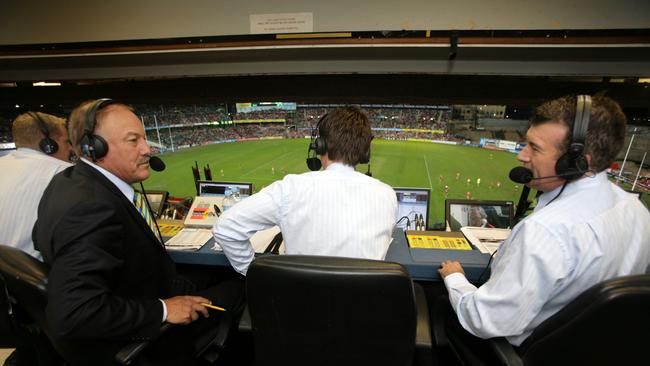
The viewers, benefiting from Blight’s wisdom, watched Blight’s perceptive analysis become part of Richmond’s readjustment.
“I wanted to inform the viewer,” Blight said. “I wanted to give them some understanding of what was happening in the game. The play-by-play commentators — Cometti, Roberts and Morphett — were calling the game kick by kick, mark by mark. I was looking for the little things that added to the viewers’ appreciation of the game.
“I’d say less hoping to give more.”
A year later, perhaps with the Geelong hierarchy having learned as much as Channel Seven’s viewers about Blight’s sharp analysis of football, Blight was back in the coaching game with Geelong. Fenton regained Blight in 1995 with an idea to put “three blokes around a bar talking footy”.
It was the start of Talking Footy with the bar making way for a couch and two extra armchairs — the host, Bruce McAvaney, and a special guest starting with Collingwood premiership coach Leigh Matthews (and eventual Talking Footy couch sitter).
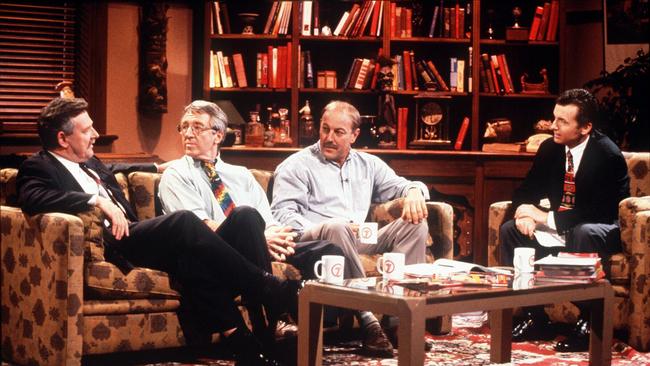
In his two years at Talking Footy — before answering the Crows’ call — the most-challenging guest was Carlton president John Elliott. And the grief was not posed by Elliott’s bold views on football. He would not appear unless he could smoke — in a non-smoking television studio. For the first and only time, the Talking Footy “lounge” had an ashtray.
“It was a sleeper … it grew an audience to finish that first season on the front cover of television guides as the must-watch show at 10.30pm on Mondays,” Blight recalled. “Mike and I joked at the start that if it did not work we wouldn’t worry … it would be remembered as McAvaney’s show.”
Blight’s final run on television — a decade with Channel Ten — was marked with the critiques declaring Blight had anger in his commentary.
“I always felt if I saw something in a game, I’d say it,” Blight said. “And not everyone would agree with what I had to say.
“I love the game. I love being at the game. But if you are not going to say what comes to mind when you are in the commentary booth, what are you doing there?
“I never asked to do it. I was asked. I started aware of the importance of not saying too much. I finished well aware that you also can’t say nothing. And across those (13) years, on and off television, I certainly learned you can’t get everyone to agree with what you say 100 per cent of the time.”
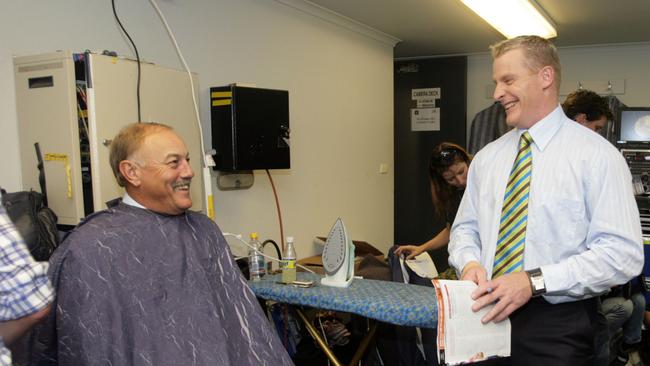
THE TV YEARS
GAMES ON TV
THEN: Two VFL games on replay on Channel Seven and the ABC in Melbourne; “Match of the Day” from the SANFL with Channel Nine/Seven (along with live telecasts of a reserves match).
NOW: SANFL with one game on free-to-air television with Channel Seven with league paying as much as $1 million-a-year for production costs.
AFL has every league game telecast live either on free-to-air network Channel Seven and Pay-TV arm Fox Footy Channel.
Both leagues have live streaming of digital signals.
LANDMARK MOMENTS
1977: VFL grand final (with Blight playing for North Melbourne against Collingwood). Channel Seven paid $100,000 for first live telecast of the grand final.
1986: VFL sells television rights to a bidder outside the commercial television networks and public broadcaster, ABC. Broadcom buys rights and on-sells to ABC for $1.5 million.
TV RIGHTS
THEN: Channel Seven and ABC paid $200,000 a season to each replay one VFL match each weekend.
NOW: Channel Seven and Foxtel (Fox Footy Channel) paid Australian record $2.5 billion for six-year deal (2017-2022) to show all AFL games.
SHOWS ON TV
THEN: World of Sport on Channel Seven in Melbourne and Adelaide; Football Inquest and Sunday Football Show on Channel Nine in Melbourne and Adelaide and KG’s (Saturday) Footy Show on Channel Nine in Adelaide.
NOW: Television shows across three free-to-air commercial and public networks and 24/7 programming on Fox Footy Channel.
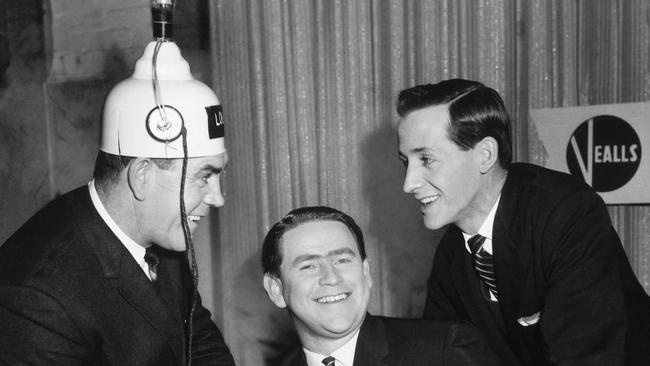
LANDMARK MOMENTS
World of Sport, hosted by Ron Casey, starts on Channel Seven in Melbourne in May 1959 as a panel show reviewing sport, in particular the VFL.
The Winners, hosted by Drew Morphett, starts in 1978 (to 1987) on the ABC as a one-hour program on Sundays with replay of two VFL games and weekly segment with goal, mark and play of the day.
The Footy Show, hosted by Eddie McGuire, airs on Thursday nights from its launch on March 24, 1994.
Talking Footy, as a Monday night football review program, starts on Channel Seven with Bruce McAvaney as the host and Malcolm Blight and journalist Mike Sheahan on the couch. Show goes into recess in 2002 after Seven lost the AFL television rights in 2001 to Channels Nine and Ten and Fox.
Footy Classified on Channel Nine reintroduces the Monday night panel show to free-to-air television with former Melbourne captain Garry Lyon as the host.
THE STARS
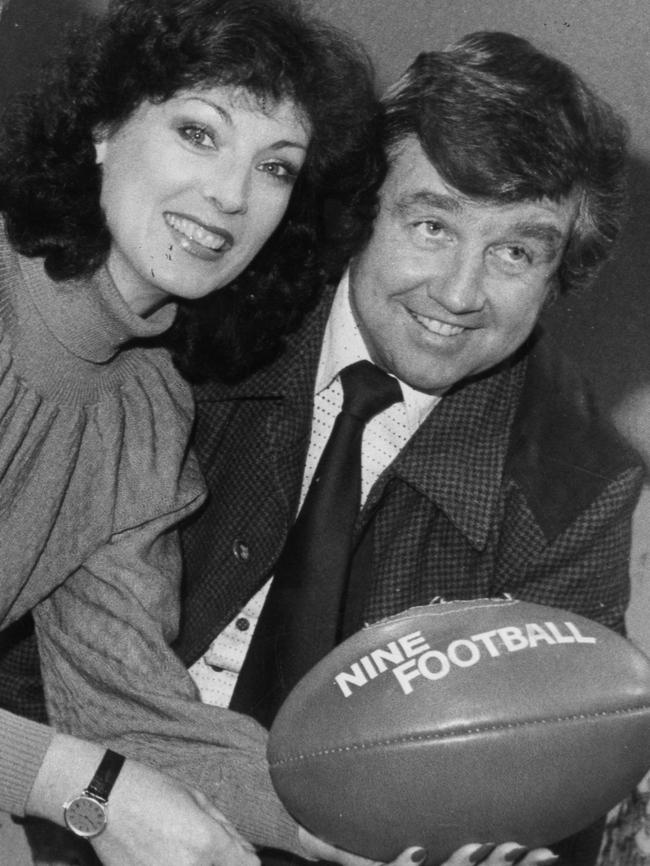
THEN: Ken “KG” Cunningham, Max Hall, Ian Day, Wally May, Ian Aitken, David Darcy, Mike Peterson and Blair Schwartz in Adelaide.
Ron Casey, Lou Richards, Jack Dyer, Bobby Davis, Mike Williamson, Tony Charlton in Melbourne.
NOW: Bruce McAvaney, Brian Taylor, Hamish McLachlan, Eddie McGuire, Wayne Carey, Cameron Ling, Matthew Richardson.
HITS AND MISSES
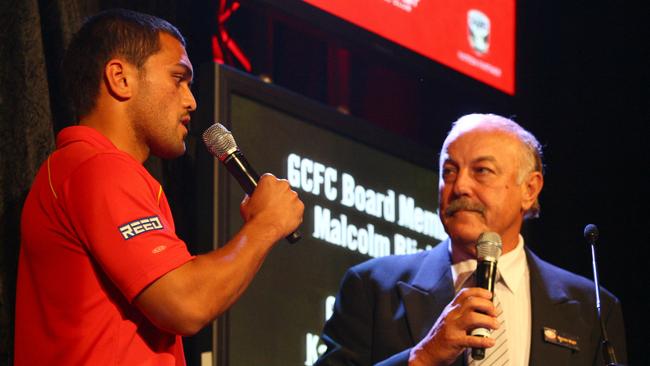
MALCOLM Blight “cheered” just once in his 700-plus VFL-AFL games as a television commentator — and came to regret it.
Blight’s final season on television in 2011 also marked Gold Coast’s entry to the national competition with Blight accepting an off-field role with the Suns. It was the only time Blight was conflicted with multiple roles in his media duties — a theme that is repeated with many other television commentators today, the most notable being Collingwood president Eddie McGuire and Adelaide board member Mark Ricciuto.
“Everyone has a team,” Blight notes. “But the viewers want an unbiased call of the game.
“That game in 2011 — the first game for Gold Coast — Channel 10 put me and (Carlton premiership hero) Robert Walls at the Gabba for special comments.
“Robert and I decided we would do something different. I’d call with the Gold Coast angle; he’d call with the Carlton theme. And I did enjoy that night with ‘Wallsy’.
“But it came back hard at us. The viewers made it known they did not want biased commentary. We never did it again.
“No-one at Channel Ten said a word to us … they did not need to. The message had come back hard and clear from the viewers.”
The one time no-one was going to hold back Blight was in the post-match of a Saturday night game in August 2008 that unfolded as former St Kilda president Rod Butterss explaining his board’s decision to sack Blight 15 games into the 2001 season by saying the premiership coach had “lost his zeal” at the time.
Blight’s stand-up response with host Stephen Quartermain remains one of the most-gripping segments in 60 years of Australian football telecasts. And it took just 40 seconds:
Blight: “I couldn’t give a rat’s tossbag whether he thought I could coach or anybody thought I could coach. Or could play.
“I don’t care. Have an opinion; we all have an opinion. But when he talked about commitment to St Kilda in the time that I was there, that’s absolute garbage, made by a very naive person.
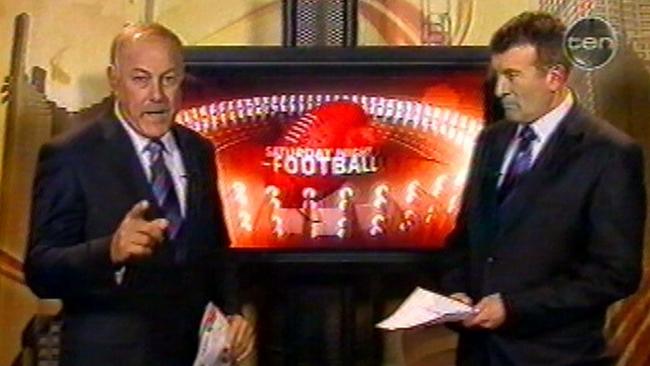
“Say I couldn’t coach, Stephen. Say I made the wrong call. Say I said something to the wrong (person). Say I said something bad. All I did was handle some egos, try to handle some egos in a very bad football club that had won two games the year before.”
Quartermain: “He said that you weren’t good with the kids. That you were better with a mature list?
Blight: “Oh yeah, so in Adelaide and Geelong, both very young teams, we came from nowhere to playing grand finals, with young teams! C’mon, that’s a wank!”
NEXT WEEK: The board rooms.
michelangelo.rucci@news.com.au
